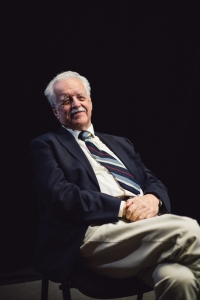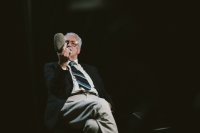Oleg Mandić: the last kid leaving Auschwitz

Download image
Oleg Mandić was born on April 5, 1933, in Rijeka. In 1944, because of the political activities of his family, he was taken first to prisons, and then to the Auschwitz-Birkenau concentration camp, as a political opponent. With the liberation of the camp, he returned to Croatia. He studied law at the University of Zagreb, and started to work as a journalist. He is a book author. Oleg is very active in meeting young people in schools and telling his story. He is known to be the last kid leaving the camp of Auschwitz.

